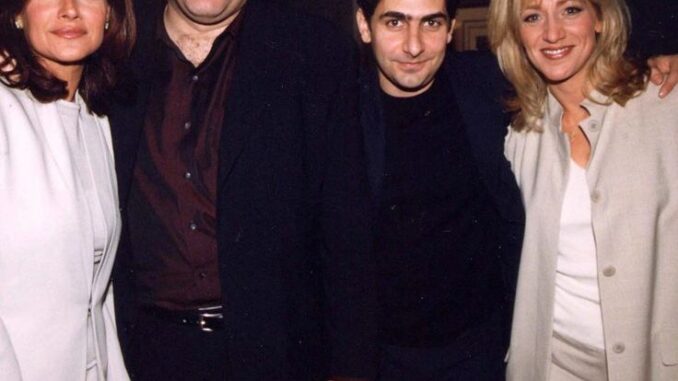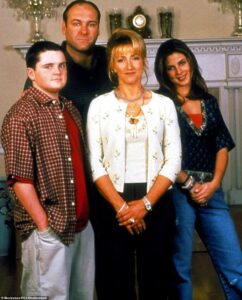
The Sopranos: David Chase’s Take on Tony’s Ending & The Many Saints of Newark
The Sopranos remains one of the most influential television shows of all time, and its conclusion has been a subject of speculation for years. Tony Soprano, the iconic antihero played by James Gandolfini, left fans on the edge of their seats with the show’s unforgettable final scene. Over the years, creator David Chase has remained tight-lipped about Tony’s fate, but recently, he’s offered more insight into what really happened. In this article, we’ll dive deep into David Chase’s thoughts on Tony’s ending, the legacy of The Sopranos, and how The Many Saints of Newark ties into the larger narrative.
What David Chase Said About Tony’s Fate
The final scene of The Sopranos has been one of the most debated moments in TV history. Fans have been questioning whether Tony Soprano survived the final cut to black or met his end in the diner. David Chase, the mastermind behind the series, has remained largely silent on the matter for years. However, recent interviews and statements have given us some clarity on his intentions.

The Silence Speaks Volumes: What Was The Final Scene Really About?
David Chase has explained that the ambiguous ending was intentional. In a recent interview, Chase revealed that he wanted to leave the ending open-ended so that viewers could interpret it in their own way. He didn’t want to give a definitive answer because, in a way, Tony’s fate was always meant to be uncertain. The sudden cut to black was designed to make the audience feel the unpredictability of Tony’s life.
According to Chase, the world Tony lives in is filled with danger, and that’s exactly what he wanted to convey with the final moments. The unpredictability of Tony’s life, both in the mob and in his personal world, is something that doesn’t resolve neatly. Just like life itself, it’s full of questions that don’t always get answered.
Tony’s Death: A Theory That’s Still Going Strong
While Chase hasn’t confirmed whether Tony is dead or alive, many fans have speculated that Tony’s death is implied. After all, the final shot leaves Tony in a moment of tension, surrounded by people who could potentially kill him. The cut to black might symbolize the end of Tony’s reign as the leader of the DiMeo crime family.
The Many Saints of Newark: Prequel or Separate Entity?
The Many Saints of Newark, released in 2021, gave fans a deeper look into the world of The Sopranos, but this time from a different perspective. The film is a prequel to the series, focusing on a young Tony Soprano and the dynamics of his family during the 1960s. David Chase, who co-wrote the film, provided fans with a glimpse into Tony’s origins and the forces that shaped him into the complex figure he became.
Exploring Tony’s Early Years
One of the most compelling aspects of The Many Saints of Newark is its exploration of Tony’s formative years. Fans had always wondered about his early life and the family dynamics that led to his eventual rise in the mob. The film shows a young Tony Soprano, struggling to understand his place in the world while dealing with the complex relationships within his family.
The Role of Dickie Moltisanti in Tony’s Development
The film also introduces Dickie Moltisanti, a key figure in Tony’s life. Played by Alessandro Nivola, Dickie is portrayed as a mentor of sorts to young Tony. His actions and guidance leave a lasting impression on Tony, and much of Tony’s character development throughout The Sopranos can be traced back to the influence of Dickie.
Why The Many Saints of Newark Matters to The Sopranos Fandom
While The Many Saints of Newark may be a prequel, it doesn’t simply exist to answer questions about the past—it also helps expand the lore of The Sopranos universe. The film provides context to many of the relationships and events that shaped Tony Soprano’s character. Moreover, it adds layers of complexity to familiar characters and introduces new ones who are integral to the story.
David Chase: His Vision for The Sopranos and Its Legacy
David Chase’s work on The Sopranos reshaped television. The series was groundbreaking in its exploration of the American family, mental health, and crime. Its success led to a new era of TV storytelling, influencing shows like Breaking Bad, Mad Men, and Better Call Saul. But what did Chase really want to achieve with The Sopranos?
The Antihero Revolution
At the heart of The Sopranos was Tony Soprano, an antihero who is morally ambiguous and deeply flawed. Chase’s decision to center the story around such a character was revolutionary at the time. It challenged traditional notions of good and evil, making the audience root for a character who was far from perfect. By creating a show that didn’t shy away from the complexities of human nature, Chase helped redefine the modern TV landscape.
Exploring Mental Health in The Sopranos
One of the most significant themes in The Sopranos is mental health. Tony’s struggles with anxiety, depression, and his visits to Dr. Melfi have been a source of both drama and dark humor throughout the series. Chase was ahead of his time in his portrayal of mental health issues, particularly within the context of a character like Tony Soprano, who is both a mob boss and a family man.
The Sopranos Legacy: Impact on TV and Pop Culture
The influence of The Sopranos is undeniable. It set the stage for a new wave of prestige television that took risks and pushed boundaries. The show’s exploration of the antihero, its complex characters, and its groundbreaking storytelling paved the way for a new era of TV. Even years after its final episode aired, The Sopranos continues to be a touchstone for fans, critics, and creators alike.
The Enduring Popularity of The Sopranos
Despite airing its last episode in 2007, The Sopranos remains a cultural phenomenon. It continues to inspire new generations of viewers and creators. The show’s impact on television can’t be overstated, and its influence is still felt in modern TV today.
The Sopranos: A Legacy That Lives On
As much as The Sopranos defined its era, its legacy has only grown stronger with time. Fans continue to revisit the show, dissecting its episodes and finding new meanings in its complex narratives. The rise of streaming services has allowed the series to reach an even wider audience, ensuring that Tony Soprano’s world continues to captivate viewers long after the show ended.
Conclusion: The Sopranos’ Lasting Impact and Tony’s Enduring Mystery
David Chase’s The Sopranos left us with many questions, especially when it comes to Tony Soprano’s fate. The show’s ending was deliberately open-ended, leaving room for interpretation. While we may never know for certain what happened to Tony, the ambiguity of the finale only adds to the show’s mystique. As for The Many Saints of Newark, the prequel offers an exciting new chapter in the Sopranos universe, shedding light on Tony’s early years and the characters who shaped him.
David Chase’s impact on television is undeniable, and The Sopranos will remain a cornerstone of TV history for years to come. The show’s influence continues to resonate with audiences, proving that great storytelling transcends time.
Frequently Asked Questions (FAQs)
1. What did David Chase say about Tony’s ending? David Chase has kept the fate of Tony Soprano ambiguous, emphasizing that he wanted the ending to reflect the unpredictability of life. He has never explicitly confirmed whether Tony is dead or alive.
2. Is The Many Saints of Newark a prequel to The Sopranos? Yes, The Many Saints of Newark is a prequel, focusing on the early years of Tony Soprano and the events that led to his rise in the mob.
3. Who is Dickie Moltisanti in The Many Saints of Newark? Dickie Moltisanti is a key character in The Many Saints of Newark. He serves as a mentor to a young Tony Soprano, shaping much of his future path in the mob.
4. Why was Tony Soprano such an iconic character? Tony Soprano’s complexity as an antihero—his struggles with morality, family, and mental health—made him an unforgettable character. His contradictions made him relatable and compelling to viewers.
5. How did The Sopranos influence modern television? The Sopranos revolutionized TV by creating a deep, multi-layered antihero and tackling themes like mental health, crime, and family. It paved the way for other prestige dramas that followed.
